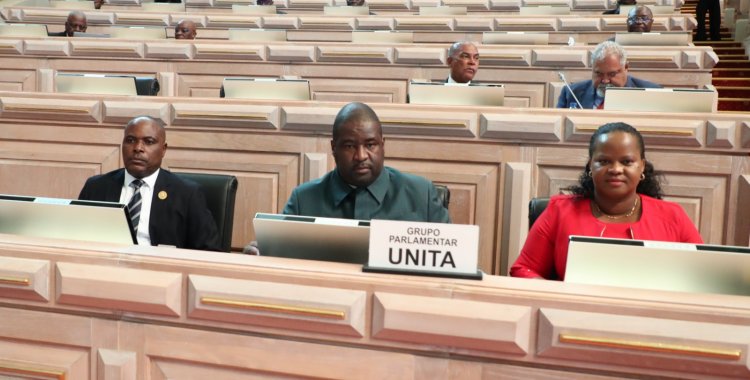The parliamentary group of the National Union for the Total Independence of Angola (UNITA) maintains that Cabinda's civil society, protest movements and the population want and support inclusive dialogue to resolve Cabinda's political-military and historical problem.
In this context, the party, which held its 12th Parliamentary Conference in Cabinda between 26 and 30 March, announced in a statement released this Monday that it will submit a draft resolution to the National Assembly to "demand an immediate end to military hostilities" in Cabinda.
The resolution also demands the "immediate start of peace negotiations between the Government of Angola and the independence movements in Cabinda led by the Front for the Liberation of the Enclave of Cabinda – Armed Forces of Cabinda (FLEC-FAC) of Emanuel Nzita and Alexandre Tati".
Taking stock of the activities carried out in that northern province of Angola, UNITA said it had noted the existence of an "atrocious war" in Cabinda, and considers that there can be no talk of effective peace in Angola while that situation continues in one part of the country.
UNITA deputies say that Cabinda is experiencing a "climate of fear and persecution" of civic activists and a culture of "hostility towards political opponents" and that "one cannot talk of peace when people are starving and dying of hunger".
In the opinion of this party, the concentrated and centralised system of governance "is exhausted" and places the people far away from their rulers and the benefits of their abundant local resources.
The Special Statute of Cabinda "is a sham, as the people of Cabinda do not elect local rulers or approve regulations in the interests of local communities", considers UNITA, which also intends to submit to parliament a bill on the supra-municipal authority of Cabinda.
UNITA deputies also regret that the money and wealth produced in Cabinda "do not benefit the vast majority of the Angolan people, much less the local population" and that Cabinda "is the face of poverty (...) of poor central governance, extreme social inequalities, regional asymmetries (...) of misery, garbage and failed public projects".
UNITA also states in the statement that local citizens in Cabinda "are mistreated by foreigners", under the "impassionate gaze of the authorities" and that natural resources are not benefiting the people.
"Local chiefs receive poverty allowances of between 12,000 and 25,000 kwanzas. Most young people are unemployed, public transport is practically non-existent. The education and teaching system offers few opportunities and alternatives. Students and workers have to walk long distances", the statement reads.
The political formation also states that Cabinda lives and survives on imports and cross-border trade, "almost everything that is consumed is imported, but the local business class is incipient, partisan and conditioned by the interests of the regime".







